Current Climate: Cool Spring Turns to HOT Summer
Summer has finally arrived. Characteristics of this current year’s (as well as last several years’) weather have been an extended wet and rainy cool spring and uncharacteristically lower humidity levels.
As storm water management, sediment, and erosion control professionals, we have seen increased demand for drainage and grading plans, as well as integrating more bioengineering, permaculture, and agroforestry design development to address this influx of spring stormwater.
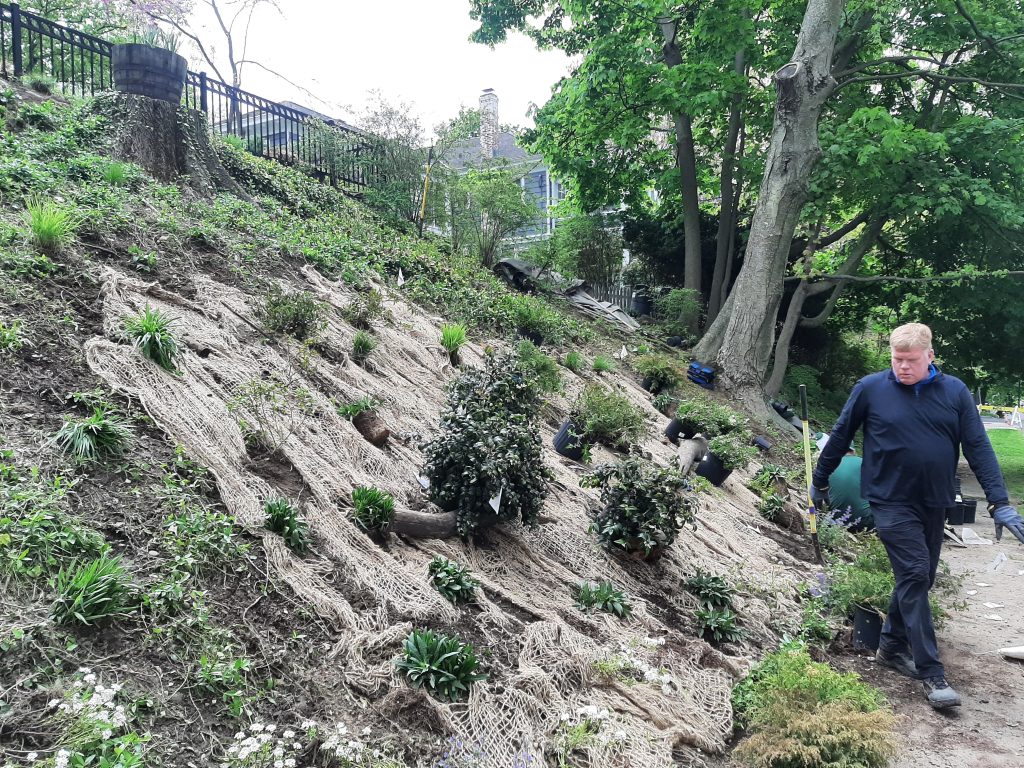
In the past few weeks, our cool spring has turned to a hot summer with abnormally dry conditions in our region. In response, our landscape stewardship protocols need to adapt. Below are our tips for maintaining your landscape in the peak of dry summer.
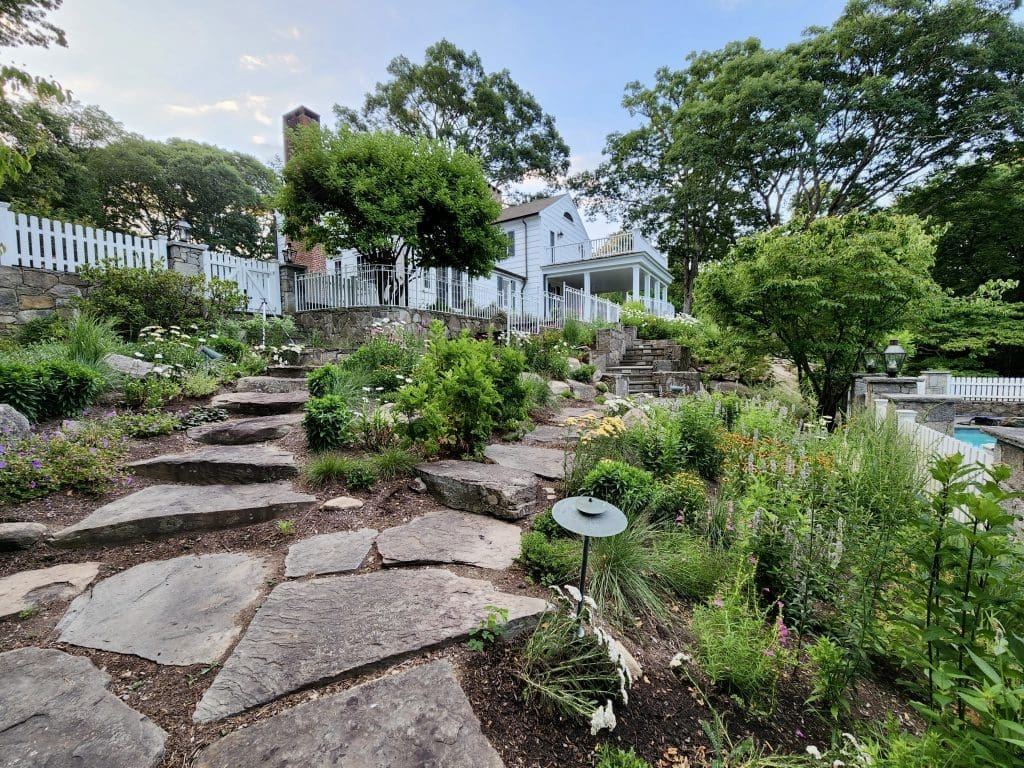
Maintenance Dos & Don’ts in Summer Heat
The water table has crashed and your spoiled plants thought they too were going to live in eternal spring. They are not ready to harden for brutal summer heat and drought.
Water them like their life depends on it…because it does!
- Do water your lawn deeply and consistently (30-45 minutes, every other day; optimally between 4 and 9 AM)
- If this is not feasible, let it go dormant until fall.
- Most lawns are going dormant from the heat – many of the most popular turf grasses (ie Kentucky Bluegrass) are cool season grasses, meaning they grow most optimally at temperatures between 60 and 75 degrees F. Above 75 degrees, they go dormant until cooler temps arrive.
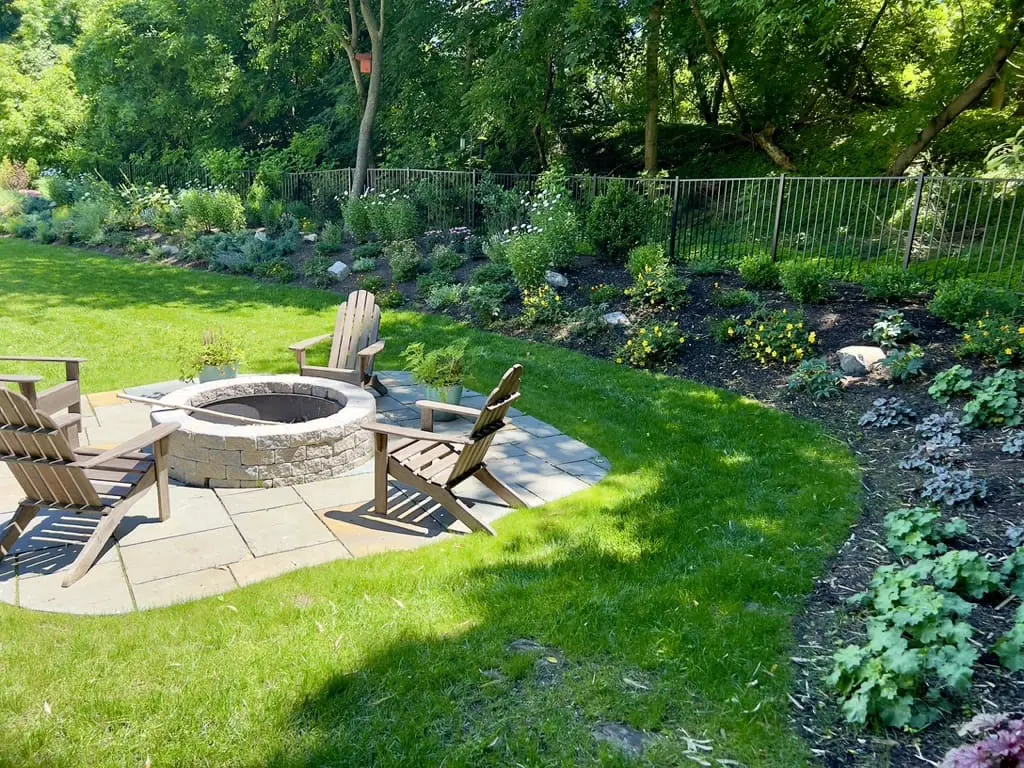
- Don’t use irrigation if you have municipal restrictions except for new plantings (planted within the last three months).
- As a general rule, new plantings should be watered every day for 20-30 minutes until established; your irrigation provider may further customize the schedule depending on plant composition and sun exposure in the bed.
- Only turn off or reduce irrigation for new plantings on days with heavy rain. (few and far between in summer)
- Don’t mow or scalp turf grass, that’s torture!
- When you mow, cut high (3 ½ – 4 inches) and recycle the clippings back into your lawn (mulch mowing). The moisture is in the plant not the soil.
- Don’t prune your trees and shrubs unless you need to clear a line of sight.
- Your plants are already stressed in the heat, pruning should wait until more hospitable temperatures in the fall.
- Don’t spray to kill insects, there are precious few left! You can’t be sure you’re not taking out all other life by attempting to remove what you consider pests. Nature has natural pest control if we enable ecosystem restoration. Read more here.
- Do use citronella plants (scented geraniums) to repel mosquitos on decks and patios.

- Do apply organic granular and liquid animal repellent regularly (once a month, like clockwork!)
- Do not spray anything at temperatures above 90 degrees F.
- Granular applications around the perimeter of beds.
- For commercial liquid applications, we mix formulation/active ingredients 20% stronger than label and spray leaves and buds of plants.
- Recommended brands: I Must Garden, Repels All, Garden Girls, Milorganite
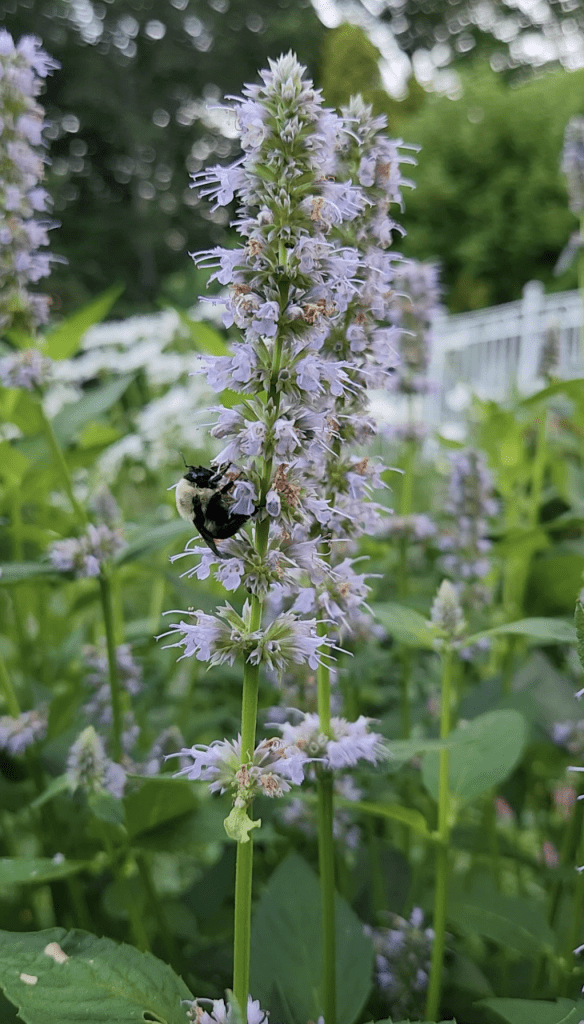
Protect Pollinators
We are finally seeing the pollinators arrive in the northeast…all the bugs! To our detriment the basic communal response is to attempt to eliminate insects (pesticides, tick and mosquito spraying). While we overconfidently presume to be able to identify and eradicate species that we consider pests, we manage to affect a continuum of imbalance in our natural world and the landscape environment which we depend on for air, water, food, shelter, and resources.
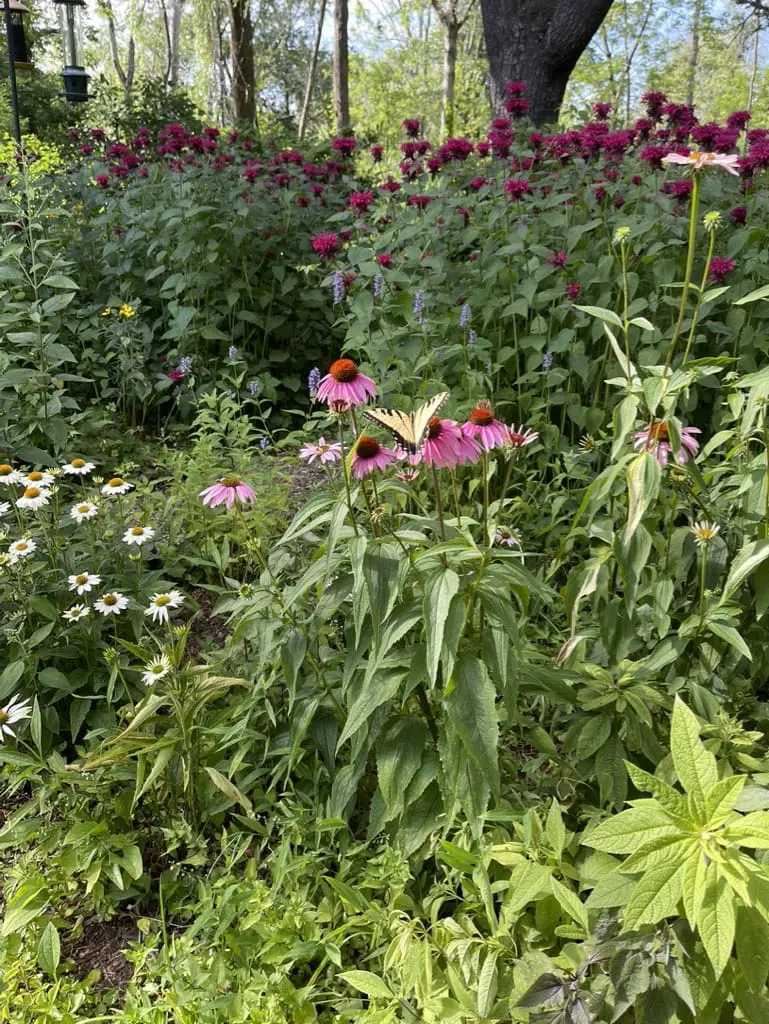
A recent study indicates that up to 80% of the population has traces of Glyphosate (the active ingredient in the herbicide RoundUp) in our urine!
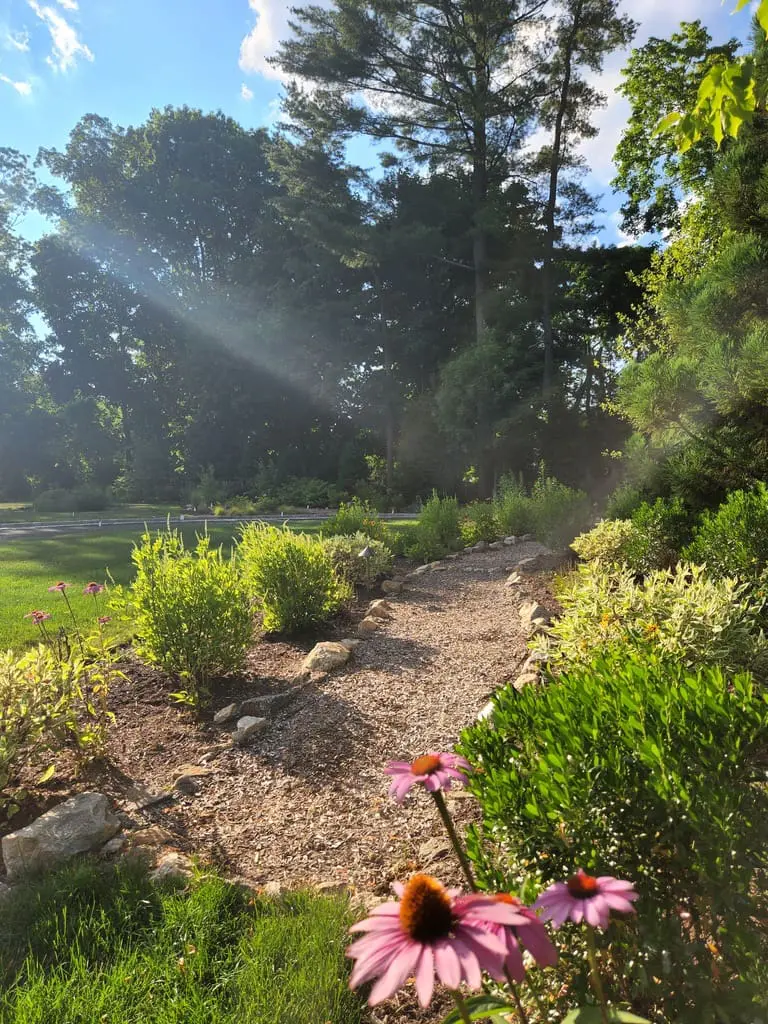
Ecological Maintenance Summary
Progressive, creative sustainability strategies for land use in the big picture, and improvements in landscape management, organic land care, and better cultural grounds maintenance practices are producing a healthier, more optimistic, and holistic realization of living with nature in our everyday landscape environment.

Spend some quality time in your beautiful outdoor ecosystem, appreciate and value what the gifts of nature and her natural resources do for our bodies, mind and spirit!
—
Jay Archer
Green Jay Landscape Design
Where Design Meets Ecology
914-560-6570